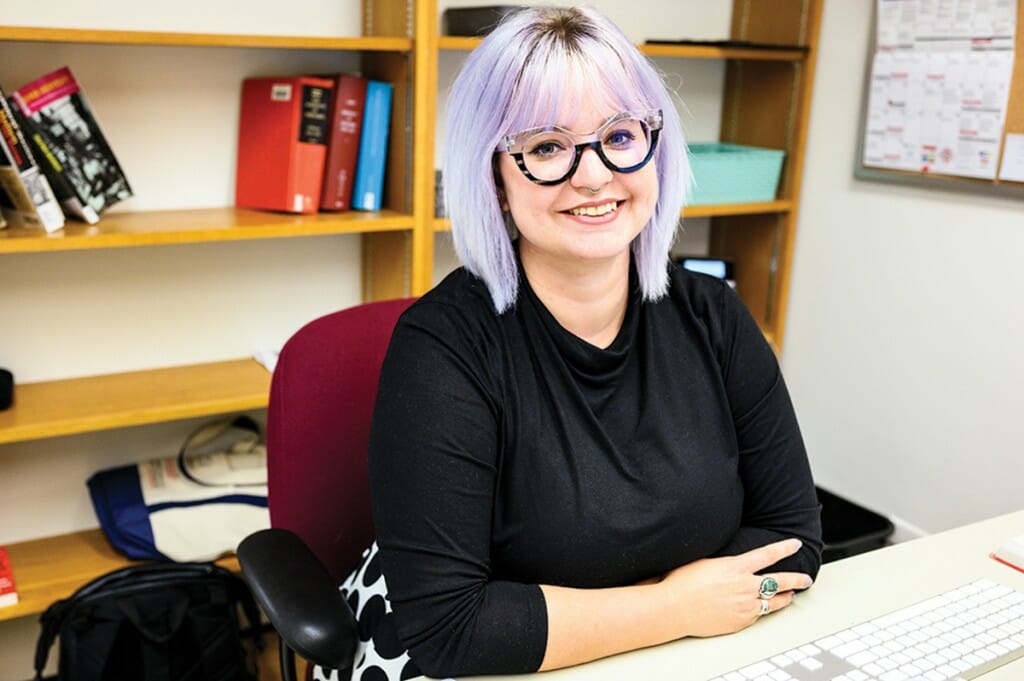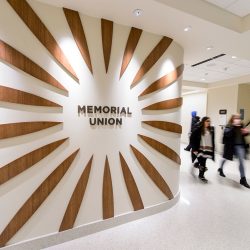Looking at Ourselves and Learning
Public History Project seeks “an honest reckoning” with the UW’s past.

Butcher’s goal is to give voice to those who experienced, challenged, and overcame prejudice on campus. Jeff Miller
As a public historian, Kacie Lucchini Butcher believes history is not just in the past. It weaves through everything we do every day.
Her professional work, which focuses on helping marginalized communities tell their stories, has brought her to UW–Madison. Butcher was hired in August as director of the new Public History Project.
The multiyear project grew out of a 2018 campus study group that looked into the history of two UW–Madison student organizations in the early 1920s that bore the name of the Ku Klux Klan. The study group concluded that the history the UW needed to confront was not the aberrant work of a few individuals but a pervasive campus culture of racism and religious bigotry that went largely unchallenged at the time.
“The study group’s findings pointed to a need to build a more inclusive university community through an honest reckoning with our past,” says Chancellor Rebecca Blank, who commissioned the Public History Project.
The project seeks to give voice to those who experienced, challenged, and overcame prejudice on campus. The effort is expected to culminate with a museum-quality exhibit in fall 2021, accompanied by digital materials accessible to everyone.
Butcher, who grew up in La Crosse, Wisconsin, earned a bachelor’s degree in art history at Augsburg University in Minneapolis. In her studies and later as a museum intern, she noticed that museums often struggle to tell stories that accurately reflect diverse populations and viewpoints. The issue motivated her to return to college, and in May 2019, she earned a master’s degree in heritage studies and public history from the University of Minnesota.
At UW–Madison, she has begun the research phase for the Public History Project, assisted by student workers.
“The stories we are uncovering will push us as a campus community to question not only our past, but our present,” Butcher says. “Yet, at the end of the day, this is our story. Knowing our past is the first step to learning from it.”
Published in the Spring 2020 issue



Comments
No comments posted yet.